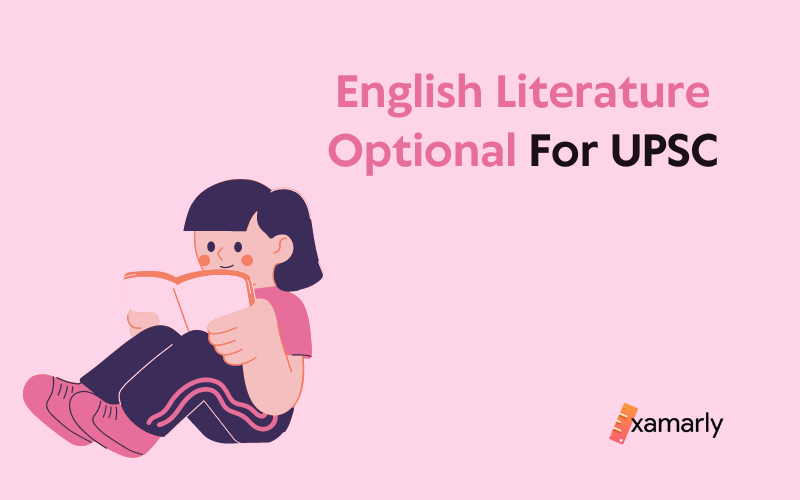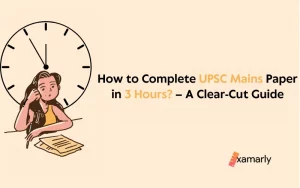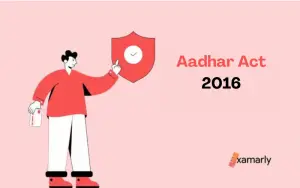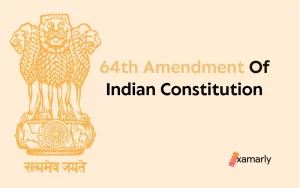English Literature Optional for UPSC is one of the 48 optional subjects offered for the Mains Examination. Recent trends suggest that English Literature as an option is becoming more and more popular. Additionally, people who have an interest and previous knowledge in this area will find this paper easy to score. The syllabus for this subject is divided into two parts which have been discussed in detail in our article on English Literature UPSC Optional Syllabus.
This article will take you through the statistics of this choice, the pros and cons, and who should essentially opt for UPSC English optional. Read on to know more.
- English Literature Optional For UPSC
- How Many Opt For English Literature?
- English Literature Optional – Pros And Cons
- Who Should Take English Literature Optional?
- English Literature Optional UPSC Syllabus
- English Literature Optional Strategy
- How To Prepare?
- How To Make UPSC English Literature Optional Notes?
- English Literature Optional UPSC Books
- Conclusion
- FAQs
- Can UPSC English Literature Paper Be Prepared In 3 Months?
- Does UPSC English Literature Optional Subject Help in Compulsory Papers Of UPSC?
- Is English Literature A Good Optional For UPSC Exam?
- How To Get The Highest Marks In English Literature Optional?
- Who Got Highest Marks In English Literature Optional UPSC?
English Literature Optional For UPSC
There are 48 optional subjects. Literature of different languages makes up 23 of them, of which one is related to the English language. It is a popular language option, especially amongst those who are fond of reading novels and poems. This means that you would have a basic understanding of different kinds of literature and also a good grip on grammar. Earlier, this optional paper was only for students who had chosen it as their graduation subject, but now it is open to all. It is not as hard to prepare for as other optional subjects, but it does require a strategy.
How Many Opt For English Literature?
While the number of students choosing literature as an optional subject is low in general, numerous IAS toppers have chosen literature as an optional subject. The Hindi language literature has the most selectors. It is followed by Telugu, Kannada, Gujarati, Tamil, and Maithili, however, the order fluctuates from year to year. Malayalam, Punjabi, and even Sanskrit are among the primary languages studied by the aspirants. English is not that popular an option and is chosen mostly y those having a graduate or post-graduate degree in the same.
Success Rate
The success rate of each optional subject is a crucial factor to consider. Every year, the Department of Personnel & Training updates the success rate of the optional topics. As per these statistics, the success rate for English as an optional subject is 9.5.
| Year | No. of candidates appeared | No. of candidates cleared | Success Rate (%) |
| 2014 | 33 | 3 | 9.1 |
| 2015 | 21 | 2 | 9.5 |
| 2016 | 40 | 6 | 15 |
| 2017 | 21 | 2 | 9.5 |
UPSC Toppers With English Literature Optional
In general, less than 50 applicants choose English literature as an optional course. It has a high success rate, and there are successful applicants with this choice every year. Mona Pruthi, who had taken English literature as an elective, received the first rank in 2005. Other English literature optional UPSC toppers were: Ajay Prakash and Suchitha Kishore who appeared in 2010 and received ranks 9 and 39 respectively, Gaurav Garg who appeared in 2015 and got a rank of 320, and Anjali S who appeared in 2017 got a rank of 26.
English Literature Optional – Pros And Cons
English literature as an optional for UPSC has merits and demerits. Some of them are discussed below:
Pros
- Limited Portions for Study – The syllabus of English literature is not as vast as you expect it to be. It is rather defined. The UPSC has established a list of authors and poets from which questions will be posed. This optional subject can be readily prepared for in 3-4 months of full concentration.
- Repetitive Questions – A list of writers, texts, and poets is clearly mentioned in the syllabus. This means that many questions in UPSC are repeated. You may readily locate them if you go through the previous year’s question paper. So, even good coverage of the previous year’s questions will get you through.
- Less Competitive – Because few candidates accept it as an option, competition is extremely low. You must write responses to the best of your ability and you will perform well.
- Beneficial for Other Subjects – Despite the fact that there is no connection between English literature and other broad topics, this might aid you in gaining writing skills as well as general knowledge of history and world affairs. It will greatly aid your understanding of Europe and Britain. This will also help in writing the essay paper.
Cons
- Inadequate Material Availability – Because English is a unique optional topic, there is not enough material accessible to assist you. Finding a decent exam series, resources, and practice tests for your preparations is tough.
- Subjective Nature of Paper – There is no one right answer, especially in written questions. You cannot readily determine your success because it is totally dependent on your preparations. Until the very end, your scores are quite unexpected.
- Little Possibility for Guidance – You will most probably not be able to get peer advice for your preparation. Very few people chose this and hence you won’t have a fully-guided peer or study group.
- Writing Ability – To do well in this topic, you must be able to write well. Everything should be excellent, from the structure of the answer to the substance. This requires a thorough comprehension of the syllabus, pattern, and in-depth study. Furthermore, your handwriting should be basic and clean.
Who Should Take English Literature Optional?
The first and foremost criterion would be prior knowledge which will help in ascertaining a deep understanding of the texts. Anyone who has taken graduation or post-graduation in English Literature is an ideal candidate for this optional. The second criterion would be of interest. Interest not just in reading but also writing. A passion for reading poems, dramas, and novels is an ideal trait. So is a passion for writing.
English Literature Optional UPSC Syllabus
In UPSC Mains, this optional is made up of two papers (Paper-I & Paper-II). Each paper is worth 250 points, for a total of 500 points. In essence, the curriculum contains the following: 14 novels, 5 plays, 60 poetry, and a basic foundation of English literary history. The syllabus is simple and easy to understand, and it requires good writing skills. You will also need to analyze the texts and analyze the characters in them.
Structure Of The Papers
- Paper 1 – Period 1600 to 1700 (start of modernism)
- Paper II – Period 1900 to 1990) (postmodernism)
Both exams are separated into A and B portions. In both papers, Section A deals with theatre and poetry, whereas Section B deals with prose.
English Literature Paper-I
- Section A: Poetry and Drama Questions (five questions carrying 10 marks each)
- Section B: Five questions (one of which is an unseen verse)
English Literature Paper-II
- Section A: Five previously unseen poetic sections
- Section B: Five short notes questions
English Literature Optional Strategy
Depending on your interest in literature, you should dedicate 3 months to this subject. The most important thing is to find your interest in it and find out what your strengths and weaknesses are. To make the strategy for preparing English literature optional paper for UPSC, it is wise to decode the structure of this optional paper in UPSC Exam. This will give you a base on which we can lay out our strategy to prepare.
How To Prepare?
- Read the Syllabus: You should read the syllabus thoroughly. This will help you in preparing a strategy that meets the needs of the syllabus and your knowledge competence
- Previous Year Questions: Look into previous year’s papers to understand the UPSC Exam Pattern. This will help you get an idea of the important areas. Make it a habit to do mock tests and practice papers based on the previous year’s papers. It will ease your exam preparation.
- Reading the texts: The syllabus will specify which works you must read. Try to read these classical texts and original texts in the context that it was written.
- Social, Political, and Historical Context: Gain a thorough awareness of the sociopolitical context of the time period in which the particular is situated. Evaluate the context, belief system, and moral values of the story’s characters.
- Read Academic Papers: Platforms such as academia, Google Scholar, Jstor, and others, where you may locate scholarly articles that may be informative articles. This will expand your knowledge sphere and help in writing long answers.
- Practice Writing – You will be graded on the basis of originality and sharpness in your replies. As a result, practice and write as many answers as you can.
How To Make UPSC English Literature Optional Notes?
There are a few tricks that you can use to make your UPSC English Literature optional notes stand out from the rest. First of all, you must make sure to write a few key points about each piece of literature. For example, you must include the author’s name and the period in which the piece was written. In addition, you should note down the flowchart of characters, major plot points, themes, and motifs of the piece. You can also include comments made by literary critics. Be thorough and precise with your notes. This will help you in revising later.
English Literature Optional UPSC Books
Students who studied literature in college or university know the recommended books of the subject. However, for the first timers, it can be a bit tricky to choose the right ones. The first step in preparation is to familiarize yourself with the syllabus. The second step is to gather your study materials. Here is a list of literature textbooks or study materials that can help in your preparation:
- History of Literature – Louis Cazamian
- The Routledge History of Literature in English – Ronald Carter & John McRae
- A New History Of English Literature – Bhim S Dahiya
- Practical Criticism by Oxford University Press
- A Glossary of Literary Terms – M.H Abrams
- Literary Theory Today by Pramod K Nayar
- All poems, novels, and plays suggested in the syllabus
Other Literature Optional For UPSC
| Tamil Literature Optional For UPSC IAS Exams |
| Hindi Literature Optional For UPSC |
| Hindi Optional Syllabus For UPSC |
| Gujarati Literature Optional For UPSC |
Conclusion
If you have a strong background and possess a passion for literature, you may want to take up this optional subject for your Civil Services Examination. While the syllabus is not huge, you’ll need to read around 60 poems and 14 novels. In addition, you’ll also need to develop an understanding of the history of English literature and different approaches to literature. Choosing the optional subject depends on how interested you are in literature and how much you’re prepared to study it. Once you’ve done that, you should be able to hold a good score in the IAS Exam.
FAQs
Can UPSC English Literature Paper Be Prepared In 3 Months?
To crack UPSC English literature, a candidate needs to devote at least three to six months to study the syllabus. In these three months, he/she can get acquainted with important poems and famous lines. He can also make use of the internet to find more information about a poem. After studying the poems, he should concentrate on the historic portion of the syllabus. In this section, he can also use a glossary to make his studies more effective.
Does UPSC English Literature Optional Subject Help in Compulsory Papers Of UPSC?
Although UPSC English Literature papers do not immediately overlap with the general papers, they can serve as a valuable resource in studying European history and in writing answers for the latter.
Is English Literature A Good Optional For UPSC Exam?
English Literature as UPSC Optional is one of the best subjects to opt for at UPSC Civil Services. It has a clearly defined syllabus. This syllabus has very specific questions and doesn’t change every year. So, a good analysis of the syllabus and previous year’s question papers along with a good read of the texts will help. English optional for UPSC is a rather easier approach when compared to other optional papers.
How To Get The Highest Marks In English Literature Optional?
To get the highest marks in English Literature optional, you have to prepare well. You should know what the syllabus will be before you start studying. It is also important to understand the topic thoroughly. This subject is more rigid than general studies and requires high understanding skills. You should avoid submitting the wrong answers or blatantly guessing the answer.
Who Got Highest Marks In English Literature Optional UPSC?
Gaurav Garg received the highest marks in English Literature optional in UPSC Exam 2015. He got AIR 320 with English literature as an optional subject in the UPSC Exam. He scored 123 and 121 on paper 1 and in paper 2 of this optional paper.






